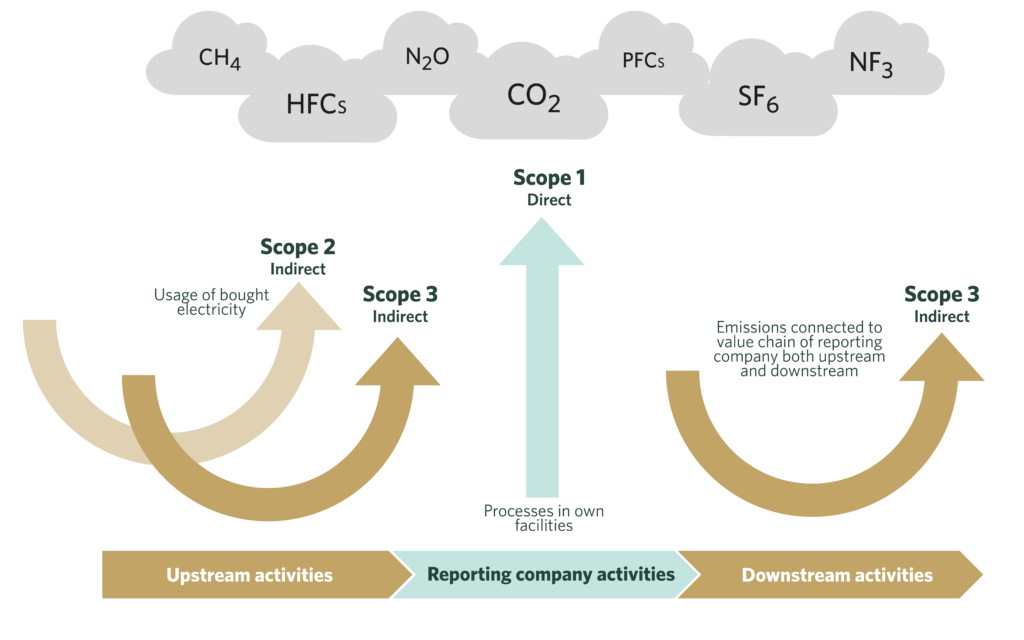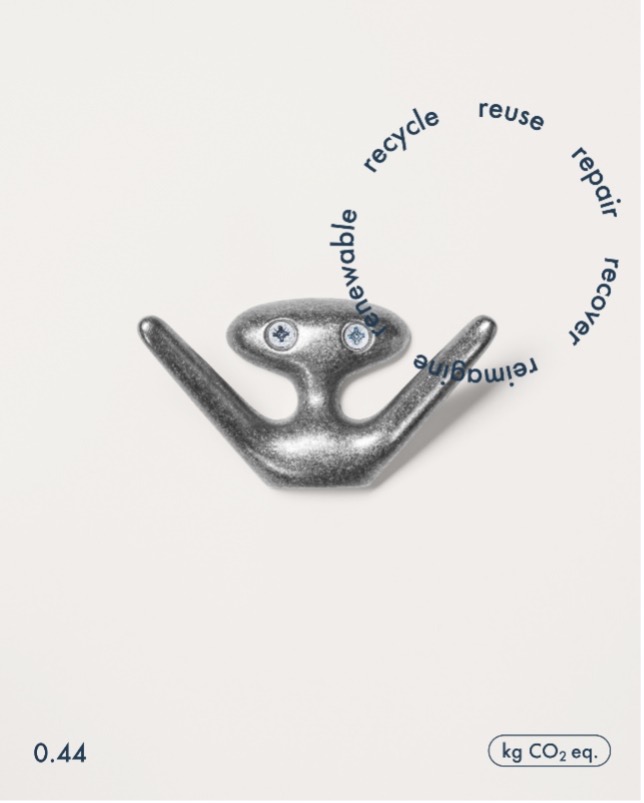Identify categories
We help you evaluate which GHG Scope 3 categories are most relevant to your organization based on your operations and value chain.
Today, it is crucial for companies to take responsibility for their environmental impact. An important step in this direction is to understand and manage their indirect emissions, also known as GHG Scope 3 emissions. GHG Scope 3 emissions often constitute a large part of a company’s total climate impact. Calculating one’s GHG Scope 3 emissions is therefore essential to get a comprehensive picture of one’s emissions and through that identify opportunities to set relevant sustainability strategies. Including the reporting of GHG Scope 3 emissions will become mandatory in accordance with CSRD (Corporate Sustainability Reporting Directive).
Calculating GHG (Greenhouse Gas) Scope 3 emissions is not very different from the method of conducting life cycle assessments (LCAs). By applying the principles of LCA and by using market-leading LCI (Life Cycle Inventory) databases and LCA software, we can make very accurate assessments of GHG Scope 3 that meet all the requirements from standards.
We help you evaluate which GHG Scope 3 categories are most relevant to your organization based on your operations and value chain.
We help you understand which environmental aspects should be included and what data needs to be collected. For example: purchasing data, transportation, waste.
Using SimaPro, we calculate emissions for each source within the GHG Scope 3 categories based on the collected data.
The results are delivered in a report and presentation. We provide recommendations for the next steps and how to follow up on the data in a structured manner.
Within GHG Scope 3, there are different types of categories that can be associated with emissions. We evaluate which GHG Scope 3 categories are most relevant for your organization based on your operations, value chain, and environmental impact.
We support you in identifying key parameters and then collecting relevant data for each emission source. This can include purchasing data, transport data, travel information, waste data, and other relevant information. It is important to collaborate with various stakeholders, such as suppliers and customers, to obtain a more comprehensive picture.
Using the LCA software SimaPro, we calculate the emissions for each emission source within the GHG Scope 3 categories based on the collected data.
The results are delivered in a presentation and compiled in a report along with our interpretation and recommendations for reduction strategies. The results can also be handed over as a web-based tool in SimaPro Share or Explore, this way you can interact with the results and gain further understanding.
GHG Scope 3 involves taking a comprehensive approach to the carbon footprint by also looking at the indirect emissions that occur along the entire value chain as a consequence of a company’s demand. Through GHG Scope 3, an assessment is made not only of the impact directly caused by a company (GHG Scope 1), but also includes the emissions that occur indirectly as a consequence of the company’s actions and demand along the entire value chain.
GHG Scope 3 emissions can include everything from purchased goods and services, business travel, employee commuting, waste management, and the use of the products a company sells.

The GHG Protocol is a standard for measuring and reporting emissions, and this standard will also serve as the basis for calculating climate impact in accordance with the CSRD (Corporate Sustainability Reporting Directive). The Science Based Targets initiative also includes GHG Scope 3 impact in its methodology for setting science-based targets for emission reductions.
Miljögiraff helped Essem, interior company in the building sector, with climate calculations at the organizational level according to the GHG protocol.
